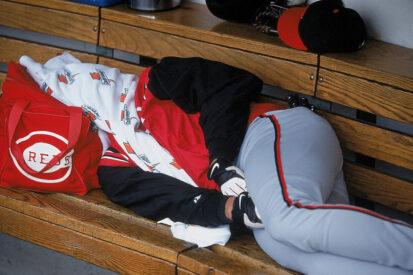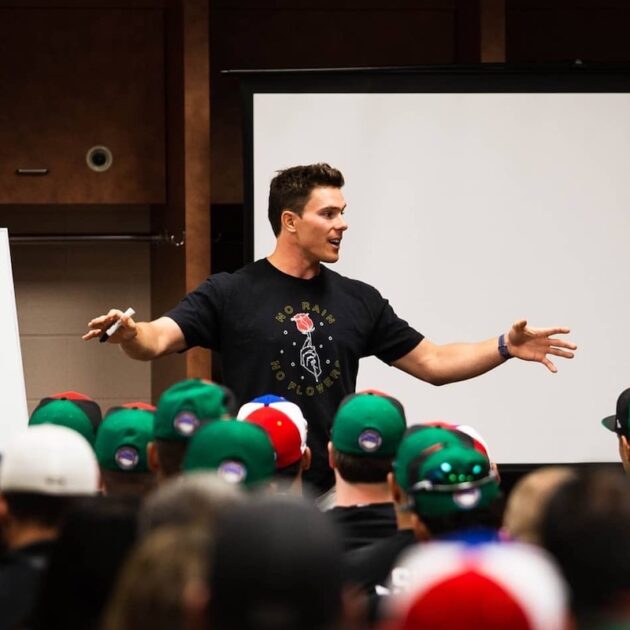Emotions play a role throughout our entire life. Every single day we experience new emotions and we learn from them. A lot of times we wouldn’t be who we are today if it wasn’t for the emotions we experience from different life events. One of my closest friends and mentors, Jake Wiskerchen, always taught me that emotions are temporary. Whether it is joy or sadness, there is always a beginning, middle, and end.
Part of becoming a great leader is having the ability to experience your emotions and be able to reflect on them. Emotions can take us on a journey where we can learn to be the best person possible for ourselves and those around us. In athletics, experiencing emotions is just as important as well. Atlanta Braves shortstop Dansby Swanson stated that “It’s the key to living a full life” when discussing the importance of experiencing a full range of emotions. Dansby felt that there was little chance of him having success at the Major League level without trying to reflect upon his emotions and life experiences every single day.
How to Handle Emotions
You may be asking yourself “how do I reflect or make sure I am fully experiencing and reflecting on emotions when there can be a million new ones every single day?”. When growing up, a lot of times we aren’t taught how to deal with emotions. We aren’t taught how to handle certain situations when we are feeling scared, angry, or even sad. Taking steps to figure out how to learn and regulate your emotions can be key. One of those steps is just paying attention to your feelings. Whether they are good or bad. Writing down your thoughts and feelings in a journal can help take negative thoughts out of your head and leave more free space for positive emotions. How did you feel after your game you went 0 for 5 with 3 K’s? What did you learn from that emotional experience? What did you feel in-between each at-bat? After the first at-bat did you let your emotions carry over to the next one?
Learning how each emotion impacts your behavior and performance could be a great first step in taking control of them. Once you realize how your emotions impact your performance, it might be easier to learn how to make sure you don’t allow them to do it again in the future. To be a good leader not only for yourself, but your teammates is to figure out the cause of your emotions and learn how to regulate them. The first step is to take a lot of your negative thoughts that are created by your emotions and find a way to write them down. The goal is to free space for more positive emotions. The best way to be a leader for not only you, but your teammates is to figure out the cause of your emotions and learn how to regulate them.
You Are in Control
When learning how to deal with your emotions, one of the biggest lessons is to remember that you are in control. Always remind yourself that emotions are temporary. Take time to reflect on how those emotions made you feel and how they impacted your performance on and off the field. Even negative emotions can have a positive impact if you take the time to reflect and learn how to make sure that they don’t harm your performance in the future. Once you develop the ability to be in control of your emotions, it will lead to more confidence in your decision-making. If you are leading a team, your teammates will see that confidence and they will be more inclined to have trust in your decision-making. The journey to successfully controlling your emotions will not always be an easy one. At times it might even get frustrating, but always remind yourself that you are in control and that it is a step-by-step process that is worth the long and winding road. As Dansby Swanson stated, once you experience the full range of emotions, you will start to get the feeling of living a full life.








